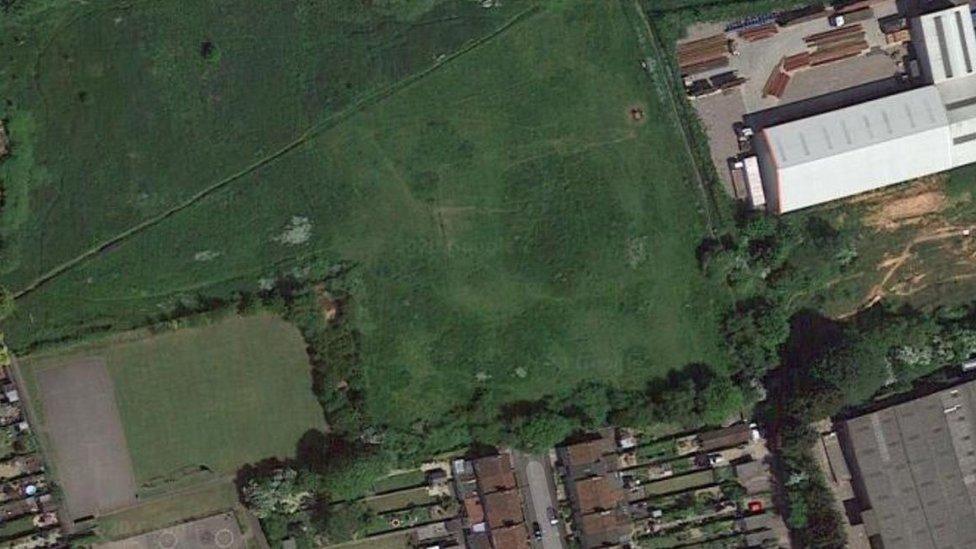Midsomer Norton generators to go ahead 'without scrutiny'
- Published

The three gas-powered generators are to be built on land close to the Midsomer Enterprise Park in Midsomer Norton
Three gas-powered generators have been approved in Somerset that critics say "flies in the face" of the county council declaring a climate emergency.
Delegated powers were used by Bath and North East Somerset Council (Banes) to approve the plans, external, leaving councillors unable to have their say on it.
Labour councillor Grant Johnson said the decision was "ridiculous" after the declaration in March 2019.
Banes said it took into account "all comments received in... its decision".
The application for the "standby gas generator plant" to be built on "vacant industrial land" in Midsomer Norton was approved by officers despite over 50 objections from local residents.
The decision was taken while some of the authority's scrutiny and committee meetings are suspended "until further notice" because of the coronavirus pandemic.
But Mr Johnson said the approval "totally flies in the face" of the authority's climate emergency declaration and councillors have "been denied" the ability to hold the council to account.
"We can't abandon fossil fuels over night but what we shouldn't be doing is committing ourselves to developments which have a life span of 25 years," he said.
"It's absolutely ridiculous, all it will do is increase our reliance on dirty fossil fuels when other options are available."
'Many alternatives'
Pete Capener, from Bath and West Community Energy which aims to deliver renewable energy to local communities, said there was a need to "balance demand and supply".
"We've got increasing amounts of renewable energy on the grid but it doesn't always follow the demand," he said.
"So we do need ways of doing that but there are many alternatives to gas generators."
But the authority has defended the decision and insists it is committed to being "zero carbon by 2030".
"Neighbouring properties and the town council were notified of this planning application in September 2019," it said.
"The council took into account all comments received in reaching its decision in accordance with its published procedures."
With an 8 MW (megawatt) capacity, the "standby generators" will operate for a maximum of 2,500 hours a year feeding electricity into the National Grid via a nearby substation, "during periods of high demand".
- Published16 January 2020

- Published15 March 2019
